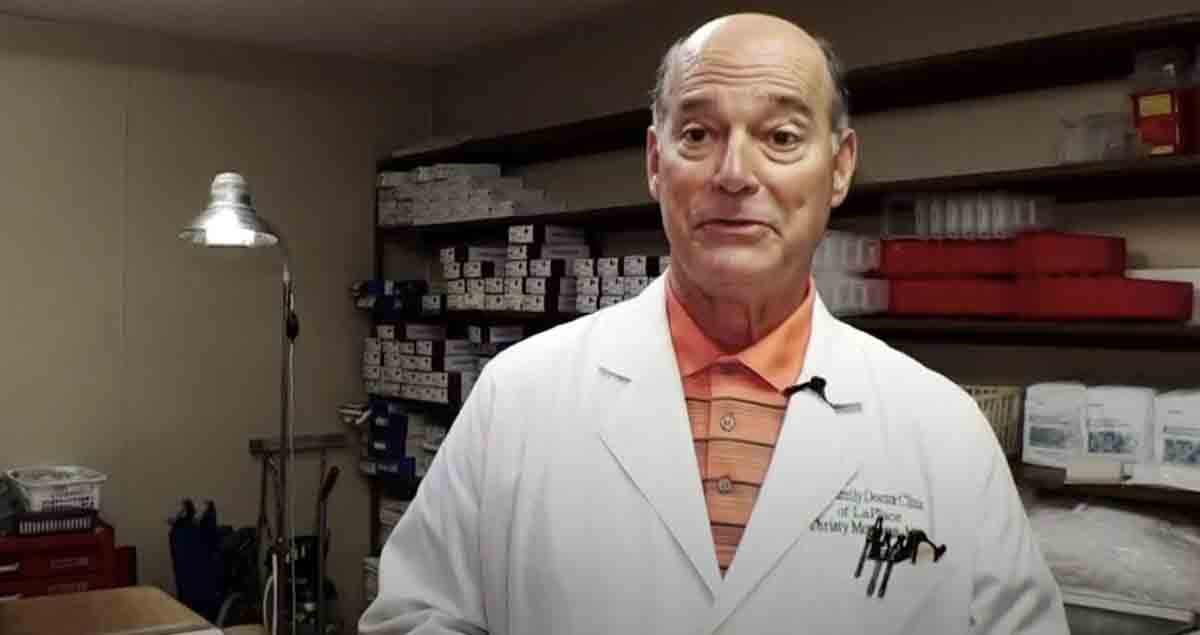Death by Cannabis in Louisiana? We Don’t Think So

News outlets have been running a story lately about a woman who purportedly died on February 19 from inhaling marijuana in LaPlace, Louisiana. The cause of death was determined by St. John the Baptist Parish coroner, Dr. Christy Montegut.
The report has understandably been met with a great deal of skepticism and even outrage. If there’s one thing that every cannabis reform advocate knows, it’s that no one has ever died from a marijuana overdose.
So, what really happened in Louisiana?
The Deceased
According to Montegut, the woman in question, who was 39 and has yet to be identified, was found dead on her couch in her apartment.
“I knew this was very unusual,” he told 4WWL’s Jacquelin Quinn. “I was expecting maybe elevated levels of alcohol or maybe some other drug.”
In the autopsy, “The only thing we found was an elevated level of THC,” he said. The women’s boyfriend said she used a vape pen. Since the vape pen wasn’t recovered, Montegut searched the web and found that the oils used in pens are often as high as 80% THC.
“For marijuana to show up positive on a toxicology test, the level has to be greater than 0.5,” he explained. Her level was 8.4.
This led Montegut to conclude that “at high levels, marijuana can cause respiratory depression, which means a decrease in breathing, and if it’s a high enough level it can make you stop breathing.” Hence, she died from pot.
The police report added that the deceased woman went to a local hospital three weeks earlier with a chest infection. She was told to take Mucinex and Robitussin D.”
The Coroner
Christy Montegut, a family practice and preventive medicine doctor, has served as the elected coroner for St. John the Baptist Parish since 1988. He’s also the athletic director of the LaPlace Lions Club.
As a local physician, he spends most of his time seeing patients and admits that determining causes of death is “not something we were trained to do in medical school.”
Nevertheless, over the years, he’s been required as coroner to “take care of situations like homicides, suicides, car crashes and infant deaths in the parish,” Montegut explained in 2016 in L’Observateur.
Dr. Christy Montegut in L’Observateur: «I am writing to inform your readers that the St. John Parish Coroner’s Office has recorded its first case of drug overdose death due to THC (marijuana) overdose.»
While Louisiana is the only state that requires coroners be medical doctor, there’s no requirement they also be trained as forensic pathologists, according to the Centers for Disease Control and Prevention.
Since Montegut is not a forensic pathologist, he’s arguably not qualified to determine the cause of death in this controversial case.
“Forensic pathology is the main field of forensic medicine which involves all matters diagnosed at autopsy, such as the cause of death, determination of time of death, estimation of degree/properties of injuries, personal identification of an unidentified body and so on,” according to the Encyclopedia of Forensic and Legal Medicine.
Yet Montegut had the audacity to write in L’Observateur on May 18:
“I am writing to inform your readers that the St. John Parish Coroner’s Office has recorded its first case of drug overdose death due to THC (marijuana) overdose.”
The Parish
While St. John the Baptist Parish may appear to be a rural backwater, it’s actually part of the New Orleans-Metairie metropolitan statistical area. The Data Center, an independent research nonprofit focused on southeastern Louisiana, describes LaPlace as “a suburban bedroom community on the Northwest outskirts of the New Orleans metro area.”
Also known as Cancer Alley, for the past several years, the EPA has been investigating high levels of the cancer-causing chemical chloroprene in the area produced by a local petrochemical plant, formerly owned by DuPont and now owned by the Japanese company, Denka. National Public Radio reported in that, “according to an analysis by the EPA’s National Air Toxics Assessment, the five census tracts around the plant have the highest cancer risk in the country – more than 700 times the national average in one tract.”
The only mention of Dr. Montegut in connection with the DuPont plant is an Equal Employment Opportunity Commission suit against DuPont filed by an employee who’d become physically disabled. Montegut testified, rather weakly, as the employee’s personal physician.
The Science
Widely known as a uniquely safe substance, cannabis has little or no effects on the parts of the brain that control vital life functions. Dr. Wolfgang Dostmann and Dr. Karen Lounsbury, professors of pharmacology at the University of Vermont College of Medicine, noted in their 2016 research paper, “The Science of Medical Cannabis” that “cannabinoid receptors are not found at significant levels in the breathing center of the brain.”
The World Health Organization’s Expert Committee on Drug Dependence (ECDD) wrote in 2018: “Cannabis is a relatively safe drug, which is not associated with acute fatal overdoses. A recent consensus report by the National Academies of Science, Engineering and Medicine (NASEM) concluded that there is insufficient evidence to support or refute associations between cannabis use and increased risk of all-cause mortality and overdose lethality in humans. Lethality studies in animals show the doses needed to induce mortality are well beyond what could possibly be consumed by a human.”
The ECDD added: “Regular cannabis users may experience higher rates of chronic bronchitis (cough, increased sputum production, wheezy airways). This is due to the irritant effects of smoking on the airways, rather than cannabinoids per se damaging the airways. Cannabis smoking acutely improves airway dynamics and forced expiratory capacity due to the bronchodilatory effects of delta-9-THC.”
Since Montegut is not a forensic pathologist, he’s arguably not qualified to determine the cause of death in this controversial case.
On the other hand, synthetic cannabinoids (i.e. K2, Spice), have been reported to induce “acute respiratory depression,” which is the cause Montegut assigned to the LaPlace women’s death. A medical review in 2017 discussed “four patients admitted in the Intensive Care Unit with acute respiratory failure necessitating endotracheal intubation after use of Synthetic Cannabinoid.” Even so, “All patients had a reversal of respiratory failure in less than 24 hours, three patients had a complicated course due to aspiration pneumonia.”
The Forensic Science International article referenced above also notes: “Synthetic cannabinoids have caused a large number of emergency presentations to hospitals for adverse cardiovascular events, including numerous deaths, particularly for the more potent analogs acting on the CB1 receptor. While smoked cannabis use is often associated with significant changes in heart rate and cardiac output, among other physiological changes, it has been rarely considered in the forensic literature as a significant contributory or causal factor in sudden unexpected death.”
There are concerns in the medical and scientific community about the potential cardiovascular effects of cannabis. In a 2019 article also in Forensic Science International, researchers noted, “These publications show that use of cannabis is not without its risks of occasional serious medical emergencies and sudden death, with reports of at least 35 persons presenting with significant cardiovascular emergencies who had recently smoked a cannabis preparation.”
The Questions
• Did the ER doctor she saw a few weeks before death miss a potentially life-threatening condition, misdiagnose her and send her on her way?
• If that was the case, then would a long-time local family doctor and Lions Club member ignore, or even cover up, a colleague’s fatal error?
• Did the deceased woman accidentally consume synthetic cannabinoids?
People can look from the outside and comment, but the only way to really know what happened to the LaPlace woman is to have a comprehensive autopsy performed by a forensic pathologist. Until then, it’s all guesswork and media hype.
RELATED
World’s Longest Serving Marijuana Prisoner Finally Freed
Freedom Leaf FAQ: 16 Questions About Hemp and CBD
AccuVape’s Dragon X Portable Vaporizer Reviewed
If you enjoyed this Freedom Leaf article, subscribe to the magazine here

